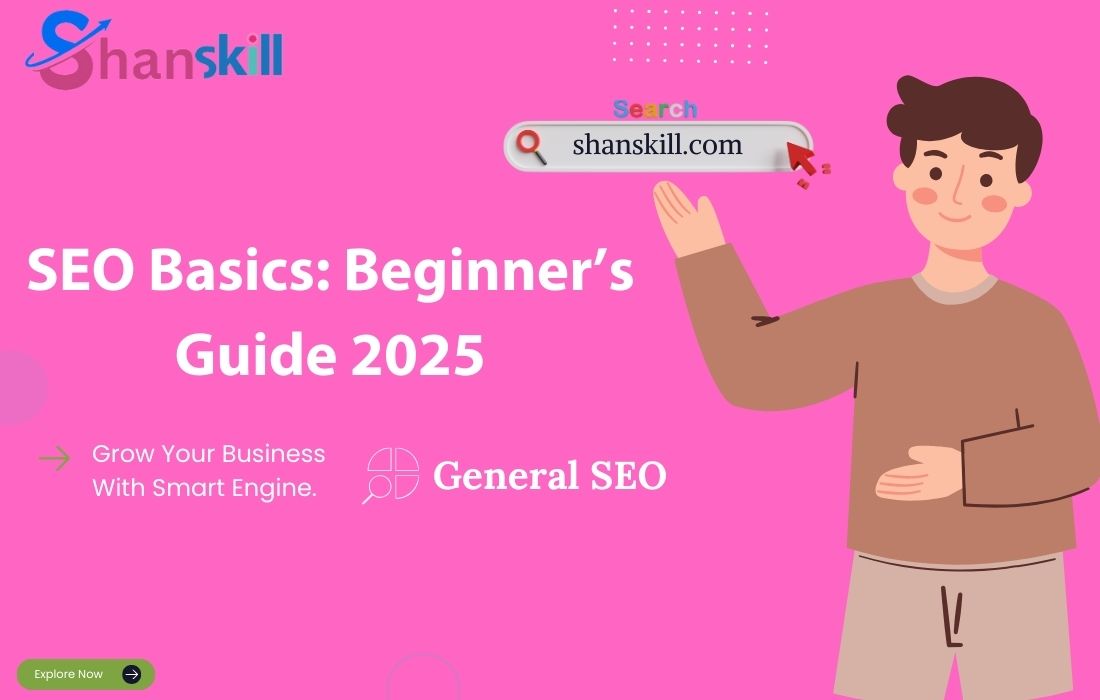Being an SEO strategist leads to a fun, fast-paced career. It involves problem-solving, creativity, and analysis. This guide is for you, whether you’re new to SEO or want to sharpen your skills. It will help you build a strong foundation and succeed. Let’s break it down step by step.
Introduction
What is an SEO strategist?
An SEO (Search Engine Optimization) strategist improves websites to rank higher on search engines like Google, Bing, and Yahoo. This drives more valuable traffic to those sites. SEO involves analyzing data and creating optimized content. It also requires strategic changes to meet user needs and search engine algorithms.
For example, imagine you have a website about pet care. By optimizing your site for keywords like “how to train a puppy” or “best dog foods,” you can attract people searching for exactly those topics. It’s all about aligning your content with what people are looking for.
Importance of SEO in 2025
With billions of daily Google searches, having a strong SEO strategy is critical for businesses to stand out. Websites that rank higher on search engine results pages (SERPs) get better visibility and credibility. They have a higher chance of capturing their audience.
This guide aims to help you learn the ropes, strengthen your skills, and build a successful career in this field!
1. Understanding SEO Fundamentals
a) What SEO Means
SEO combines techniques to improve your website’s visibility in search results. The major components include:
- On-Page SEO: These are things you can directly control on your site, such as optimizing keywords in your content, crafting strong meta descriptions, and structuring your page headers logically.
- Off-page SEO involves building credibility through backlinks—other sites linking to yours. It’s like having references that vouch for your value.
- Technical SEO: The behind-the-scenes enhancements, such as improving your site speed, fixing errors, or ensuring mobile responsiveness.
Think of SEO as building a house. On-page SEO is the design and furniture, off-page SEO is what your neighbors say about it, and technical SEO ensures the foundation is solid.
b) How Search Engines Work
Search engines like Google use bots to “crawl” websites, review their content, and determine their relevance. Imagine Google as a librarian. She scans billions of books to find the best one for your question.
Three key factors influence your SEO performance:
- Relevance: Does your website answer the searcher’s query?
- For example, if someone searches for “how to bake banana bread,” a post that addresses this topic will rank higher.
- Authority: Does your site have credible links (backlinks) from other trustworthy sources?
- Quality: Does your site offer a good user experience through fast loading speeds, clean design, and helpful content?
c) Core Skills Every SEO Strategist Needs
Being an SEO strategist isn’t just about knowing SEO theory—you need a diverse skill set, including:
- HTML Basics: Learn how to optimize URLs, edit title tags, or troubleshoot errors. For example, adding “alt-text” to describe images will improve accessibility and boost SEO.
- Research Savvy: Digging into keyword trends or competitor strategies is a must.
- Writing Skills: Crafting engaging headlines or blog posts is key to connecting with users and satisfying search engines.
Pro tip: Combine creativity with analytical thinking to build well-rounded strategies!

2. Getting Started as an SEO Strategist
a) Learn SEO Basics
Begin your learning journey by soaking in as much knowledge as possible.
- Start with free tools like Google’s SEO Starter Guide, Moz’s Beginner’s Guide to SEO, or even YouTube SEO tutorials.
- Use tools like Ahrefs, SEMrush, and Ubersuggest. They can help you learn about competitive analysis and keyword research.
b) Practice On Your Website
One of the best ways to learn SEO? Hands-on practice. Create a small website or blog. For example:
- If you love cooking, start a blog with easy recipes. Experiment by optimizing a post like “7 Quick Dinner Ideas” with keywords and SEO-friendly images.
What to focus on:
- Add keywords organically within your content and headlines.
- Write catchy meta descriptions that make people want to click.
- Improve loading speed by compressing images and simplifying code.
- Over time, watch your traffic grow and analyze what strategies are working!
c) Work on Real-Life Projects
Find small projects to gain practical experience.
- Offer to optimize a friend’s business website or run free SEO audits for local small businesses.
- Intern at a marketing agency to work on real-world campaigns.
Real-world application is where SEO begins to make sense in context.
3. Mastering Key SEO Skills
a) Keyword Research
Keyword research is your roadmap for creating relevant content that audiences search for. Use tools like Google Keyword Planner or SEMrush to uncover high-volume, low-competition keywords to target.
Example: If you run a yoga blog, instead of targeting “yoga” (which is too broad), aim for “beginner yoga poses for back pain.” These “long-tail” keywords are specific, which makes them easier to rank for.
b) Content Optimization
Content is king, but not just content—Google rewards helpful, structured, and engaging content.
Tips for Optimizing Content:
- Use headings (H1, H2) to break up articles for easier reading.
- Place your keyword naturally in the title, intro, and subheadings.
- Add images or infographics with descriptive file names and alt text.
- Ensure your content genuinely solves user questions.
For instance, in a blog titled “Easy Workout Routines for Beginners,” consider answering specific questions like “What time of day is best for exercise?”
c) Link Building
Building a good backlink profile shows Google that others trust your site.
How to Get Backlinks:
- Write guest posts for other blogs and include links back to your content.
- Publish highly shareable resources like infographics or in-depth guides.
Steer clear of shady practices like buying low-quality backlinks—it will do more harm than good.
d) Technical SEO
Make sure your site is crawlable and error-free.
Checklist for Technical SEO:
- Check that your website loads in under 3 seconds.
- Make your site mobile-friendly (use Google’s Mobile-Friendly Test).
- Regularly audit for broken links, missing pages, or duplicate content using tools like Screaming Frog.
4. Staying Updated in the SEO Industry
SEO changes faster than you might think. Google rolls out algorithm updates several times yearly, altering the ranking rules.
a) Trends to Watch in 2024
- Voice Search: Optimize for spoken queries by focusing on long-tail and conversational phrases.
- Video SEO: Over 80% of global traffic is video-based. Create, caption, and optimize video content to appear on YouTube and in search engine video carousels.
b) Join Communities and Events
Follow industry leaders like Brian Dean (Backlinko) or Danny Sullivan (search engine liaison). Participate in webinars, forums, or local SEO meet-ups to stay ahead.
c) Study Competitors
Learn from the best:
- Check what keywords successful competitors rank for.
- Use tools like Ahrefs to analyze where their backlinks are coming from.
5. Challenges to Expect and How to Overcome Them
SEO isn’t all roses. Here’s what to expect:
- Algorithm Changes: Stay calm—keep testing and adapting based on updates.
- Client Expectations: Set realistic goals. SEO takes time to show results.
- Information Overload: Focus on bite-sized learning rather than mastering everything at once.
6. Advanced SEO Strategies to Stand Out
a) Scaling Your Efforts
Automate repetitive tasks like rank tracking or auditing through tools like Google Search Console. This allows you more time for strategic planning.
b) Focus on Local SEO
Local SEO is critical for brick-and-mortar businesses to appear in “near me” searches. Claim your Google Business Profile and encourage customers to leave reviews, as these boost credibility.
c) International SEO
Want to address users globally in multiple languages? Use hreflang tags to ensure Google delivers the correct language version of your site based on the user’s location.
d) Performance Tracking
Measure success through clear benchmarks like:
- Organic Traffic Growth: Check how many visitors click from search engine results.
- Bounce Rate: Improve your site if users leave too quickly. High bounce rates signal poor relevance.
Continual monitoring and refinement is the key to long-term SEO success.
7. Common Mistakes SEO Strategists Make (and How to Avoid Them)
SEO strategists often ignore technical SEO and mobile optimization. SEO mistakes can hurt rankings. Focusing too much on keywords instead of user intent and content quality can lead to poor results. Many also fail to adapt to algorithm updates, making their strategies outdated. Keeping up with trends and optimizing for users and search engines is key to success.
8. 10 easy Earning methods for SEO specialists

1. Freelancing
An SEO specialist can freelance on platforms like Upwork or Fiverr. They can offer services like keyword research, content optimization, and SEO audits. Freelancers can set their prices and work on short-term projects. The more experience and positive reviews you get, the more you can charge. It’s a flexible way to earn money and build a reputation.
2. Client-Based Services
Many SEO specialists offer ongoing services to businesses on a retainer basis. This means firms pay a set fee each month for your SEO help. You may handle their website’s SEO, track performance, and make updates regularly. This provides steady, reliable income. You can also do SEO audits or help local businesses improve their local search rankings.
3. Affiliate Marketing
Affiliate marketing is when an SEO expert promotes products on a site or blog. They earn a commission if people buy through their link. You can create a website focused on a specific niche (like tech products or beauty) and make money by recommending products. This can be a great way to earn money passively if your website attracts many visitors.
4. Selling SEO Products or Courses
SEO specialists can sell their knowledge by creating and selling online courses or e-books. For example, you can teach people SEO through videos or guides. Websites like Udemy or Teachable let you upload courses and make money whenever someone buys them. You can also offer one-on-one coaching to people who need personalized advice.
5. Building and Flipping Websites
Website flipping is when you buy a website that isn’t performing well, improve its SEO, and then sell it for a profit. You make money by increasing traffic and improving its rankings on Google. Another way is to build a website from scratch, rank it on search engines, and then sell it to someone who wants a ready-to-go site. This requires both SEO skills and an understanding of how to market the site.
6. SEO Consulting
As an SEO consultant, you can advise businesses on how to improve their SEO strategy. Instead of doing the work yourself, you advise and guide them on what to do. This could involve doing SEO audits or suggesting ways to improve their website’s rankings. You can charge hourly or per project for this kind of consulting work.
7. Ad Revenue (AdSense, Display Ads)
If your website or blog has many visitors, you can earn money by showing ads on it through Google AdSense or other ad networks. These ads make money when visitors click on them (CPC) or view them (CPM). It’s a passive way to earn money as long as your site gets good traffic and is SEO-optimized to attract visitors.
8. Social Media Management & Content Creation
Many businesses need help with their social media. They want their posts to rank higher on Instagram, YouTube, and LinkedIn. An SEO specialist can help by optimizing social media posts, ensuring they get seen by more people. You can also write SEO-friendly content, like blogs and product descriptions. It helps websites rank higher in search engines.
9. SEO Software and Tools
SEO specialists can recommend SEO tools, like SEMrush, Ahrefs, or Moz. They earn a commission through affiliate marketing when someone signs up. Promoting tools you already use is a great way to make money. You can also create SEO tools or plugins and sell them to other businesses or individuals.
10. Agency Work
An SEO specialist can work at an SEO agency, either as an employee or by running their agency. You can work with many clients in an agency, providing complete SEO services. You earn a salary as an employee, but if you run your agency, you can earn more money by hiring other SEO specialists to help manage more significant projects.
Final Thoughts
Becoming a great SEO strategist is an exciting path where you get to mix creativity, problem-solving, and data analysis. By learning SEO basics, staying up-to-date with trends, and improving skills like keyword research and content optimization, you can boost your career. Plus, there are many ways to earn money with SEO—like freelancing, consulting, or selling online courses. SEO is always changing, so staying curious and adaptable will help you succeed. Keep learning and trying new strategies, and you’ll be on your way to a rewarding career in SEO!

